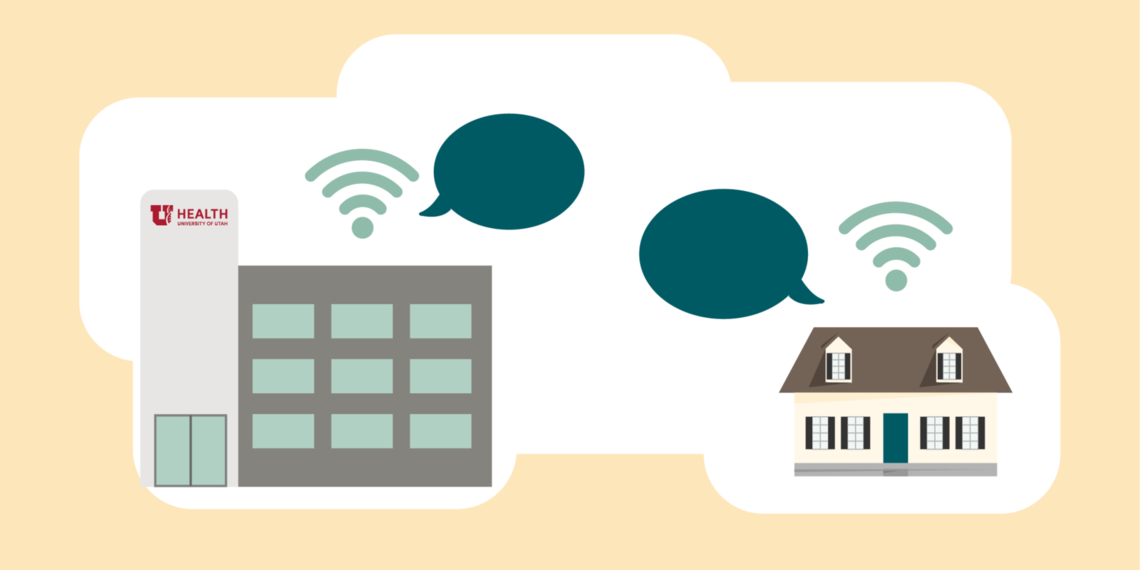Dear Effective Communicator,
Communicating feels different right now. (Everything feels different right now.) It’s mostly virtual and it’s particularly sensitive given the pandemic. What can I do to be a better communicator?
Sincerely,
Relocated to My Living Room

Dear Relocated,
hile the modes and methods of how we communicate may be different, the underlying rules of engagement remain the same. Here’s how to adapt work communication in the time of coronavirus.
Set boundaries and prioritize
Boundaries are more important than ever now that work and home are blended. During the first week of remote work, I felt like my days never really started or ended. It was a blur. I managed projects, talked at Skype avatars, wrote staff communications, responded to emails, chased a toddler, and calmed a rattled spouse, often all at once.
Tom Miller’s approach to setting boundaries has come in handy. Boundaries and priorities are two sides of the same coin, says Dr. Miller. Our ability to work thoughtfully is like running a car on a tank of gas: it depletes with use. If you use gas for things that don’t matter (like excessive emailing when a phone call will do), then you won’t have fuel for creative work. When we prioritize the most important work, boundaries naturally emerge. If my top priority is a time-sensitive report, it forces me to say no to (and set boundaries around) the other tiny requests that appear during the day.
Helpful tip for communicating with clinicians: Priorities are changing rapidly. Reach out to your clinical partners and ask them if they’d like to continue standing meetings or whether they’d prefer to postpone.
Meeting basics still apply
Running a meeting from your living room will certainly feel different, but the underlying principles remain: identify a goal, make an agenda, and set aside the last few minutes to determine what to do and how to communicate it.
I asked Kevin Noonan, the Medical Group’s analytics’ team lead, for his advice on meetings in a new normal. His team has had a partial work-from-home policy for the last year or so, which was then dramatically scaled up in the face of the pandemic. At the top of his list: consider turning your call into a video call. “Face-to-face video makes a huge difference because you can pick up on body language," he said.
Kevin also stressed the uniqueness of our current work environment. There are significant stressors at play that wouldn’t be there if we had been working from home before the pandemic. His advice is to embrace some of the chaos and stop apologizing. “It’s amazing how self-conscious we still are about a kid talking in the background of an important conference call,” he said. “Why are we still apologizing for these things?”
Take email fatigue seriously by focusing on positivity
We are living in a steady stream of bad news and our inboxes often carry the brunt of it. Now is the time to practice positivity in our email communications. Not only will it help reduce email fatigue, but it will make you more influential.
Neuroscientist Tali Sharot, an influence expert, says that we avoid negative information by seeking out good news and ignoring bad news. (Though our current media environment may prove to be something of an outlier). Embrace positivity in your emails by highlighting what is going well. For things that need to change, frame them as opportunities that you are uniquely situated to address. When you need to criticize, include possible solutions.
How we work—even the work we perform—is changing in new and unexpected ways. The way we communicate needs to adapt, but the principles remain the same.
You got this,
The Effective Communicator
The Effective Communicator is Isaac Holyoak. Isaac is contributing editor for Accelerate and leads communication for University of Utah Health Medical Group. He received a Master's in rhetoric from the Brian Lamb School of Communication at Purdue University and taught speech, argumentation, and debate to undergraduates in Indiana and Texas in his pre-health care life.
Isaac Holyoak
The role of the meeting leader takes on new prominence in virtual spaces like Zoom or Microsoft Teams. The Effective Communicator joins Antonius Tsai to discuss how you can make the transition from presenting content to leading and shaping a space that builds connection and purpose.
Academic medicine has been thrown into the brave new world of virtual communication, instruction and online learning. Pediatric endocrinologist and clinician educator Kathleen Timme shares a process to transition from traditional training to meaningful and engaging.
Feedback is often an area that breaks down under the rigors and pressure of clinical activity. Clinician educators Pete Hannon and Kathleen Timme introduce a methodology that can provide insight, inspire goal setting, and help improve clinical performance.
